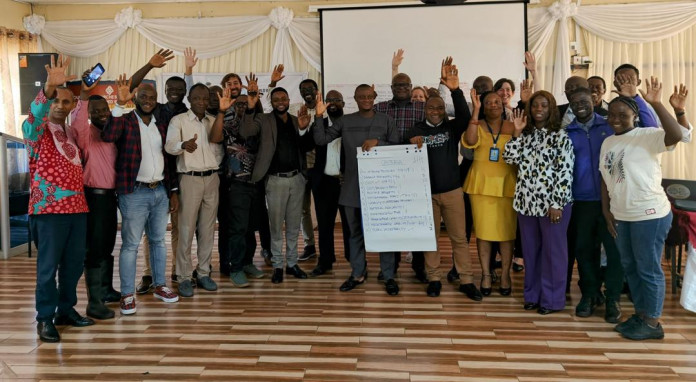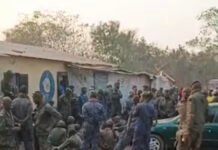By Millicent Senava Mannah
The Sierra Leone Urban Research Centre (SLURC) held a pivotal one-day stakeholder workshop on August 5, 2024, focusing on flood hazard and risk assessment. This event, part of the “Development of a Strategic Flood Risk Assessment and Management Plan for Secondary Cities of Sierra Leone” project, was funded by the World Bank and took place at the Council of Churches Conference Hall (CCSL Hall) on 4 Kingharman Road in Freetown.
This workshop, a key component of SLURC’s Resilient Urban Sierra Leone Project, was conducted in partnership with Ambiente Risorse Sviluppo Progetti, SWS Consulting Engineering and HR Wallingford. The primary objective was to engage stakeholders in discussions about flood risk, flood protection, mitigation criteria and emergency planning, enabling participants to explore potential options for reducing urban flood risk through a multi-criteria analysis approach.
Joseph Macarthy, Executive Director of SLURC, emphasized the importance of the workshop, stating, “We believe that by bringing together diverse stakeholders, we can foster collaboration and innovation in flood risk management. Our goal is to equip local authorities with the necessary tools and strategies to create safer and more resilient urban environments for all citizens.”
Braima Koroma, Director of Research at SLURC, along with Ansu Macarthy, presented insights from the socioeconomic survey data and analysis. They highlighted the social and economic factors influencing flood vulnerability within communities in Waterloo, noting that Waterloo’s rapid development into a bustling business hub presents unique challenges for flood mitigation.
Francesca from ARS Progetti discussed the Hydrological Study and Hydraulic Analysis of the Waterloo community. She explained that the Hydrological Study examines water flow patterns and their implications for flood risk, while Hydraulic Analysis assesses the physical characteristics of waterways and their capacity to manage flood events.
Matteo, also from ARS Progetti, demonstrated the use of web-based tools designed to enhance flood risk management and community engagement. Participants then engaged in group discussions to identify immediate actions to reduce flood impacts, evaluate various flood management strategies based on effectiveness and community needs, and explore a multi-criteria analysis approach to prioritize different flood risk reduction options.
Key findings from the workshop included:
– Socioeconomic Survey Data and Analysis: Insights into the social and economic factors influencing flood vulnerability within communities.
– Hydrological Study: Examination of water flow patterns and their implications for flood risk.
– Hydraulic Analysis: Assessment of the physical characteristics of waterways and their capacity to manage flood events.
– Web-Based Tools: Demonstrations of digital resources designed to enhance flood risk management and community engagement.
The workshop’s outcomes are expected to significantly contribute to the development of tailored flood risk assessments and management plans for each of the secondary cities, ultimately supporting the overarching goal of enhancing urban resilience in Sierra Leone.
SLURC urged all parties to collaborate towards sustainable urban development and the creation of resilient cities capable of effectively managing the risks associated with climate change and urbanization.
The Sierra Leone Urban Research Centre remains committed to addressing urban challenges and enhancing resilience in Sierra Leone’s cities through strategic planning and community engagement, aiming to improve the quality of life for all residents.




